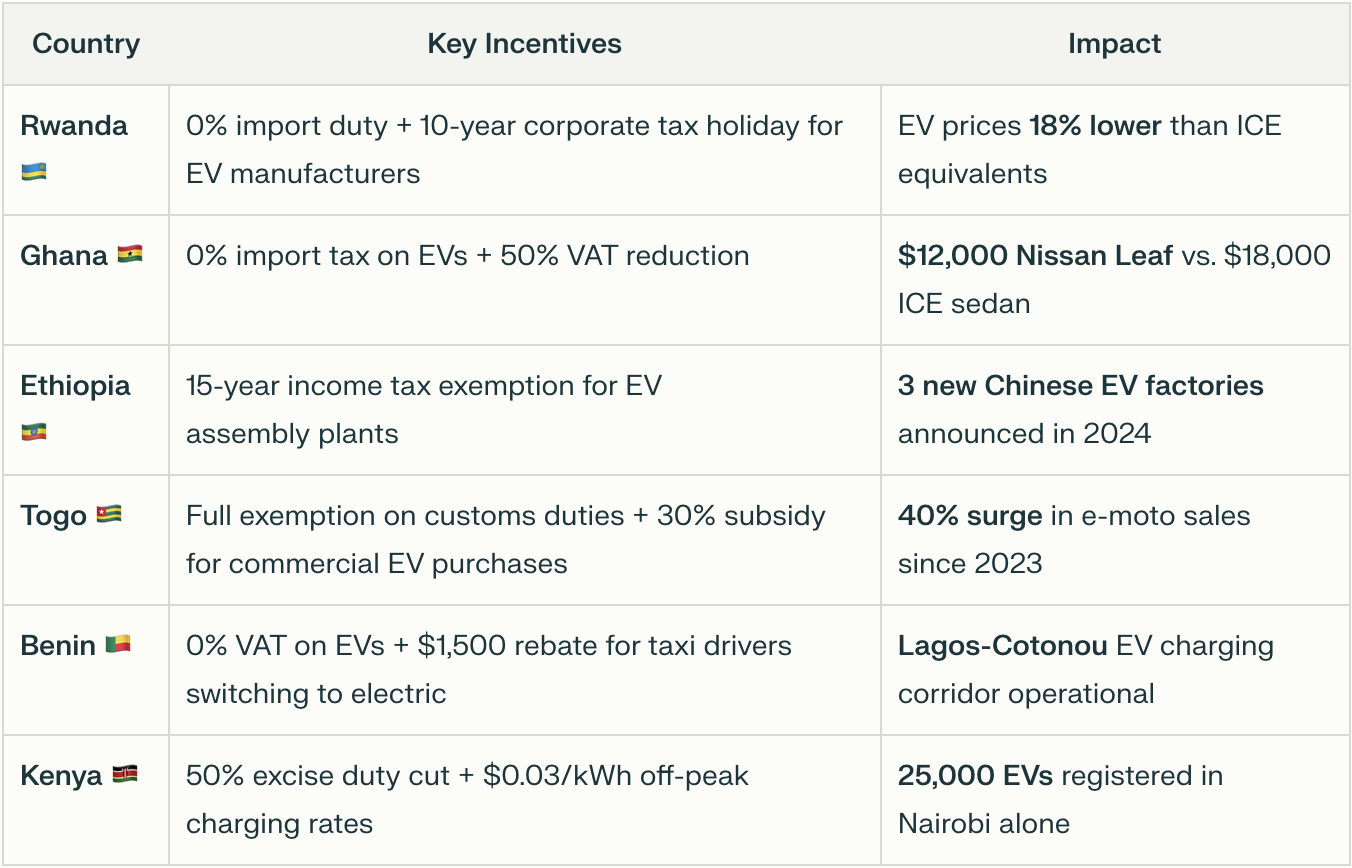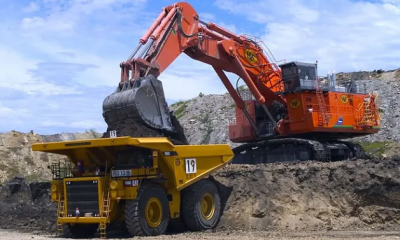Business
Global EV Sales Soar in Q4 2024 as Africa Quietly Becomes a Key Player

The global shift to electric vehicles (EVs) is gaining momentum, with 2024 ending on a high note—global EV sales surged by 27% year-on-year, reaching 14.5 million units. China remains the dominant force, capturing 60% of the market, while Europe and North America hold 25% and 12%, respectively. This rapid expansion is driven by stricter emissions regulations, declining battery costs, and expanding charging networks.
Africa’s EV Market: Surging Despite the Challenges
While Africa’s EV sector is still in its early stages, it outpaced global growth rates with an astonishing 320% year-on-year surge in the final quarter of 2024—the highest regional increase worldwide. Several factors are driving this transformation:
- Urbanization: More than 50% of Africa’s population now resides in cities, intensifying the demand for cleaner mobility solutions.
- Cheaper Energy Costs: Solar power costs have dropped to $0.04/kWh in countries like Kenya and Morocco, making EV charging more affordable than fossil fuels.
- Youth-Led Demand: With 70% of Africa’s population under 30, there is a growing appetite for modern, tech-driven transportation.
Leading Markets: South Africa, Morocco, and Kenya Take the Lead
- South Africa
remains the largest EV market on the continent, accounting for 65% of total sales. The sector has received a boost from Nissan’s $200 million assembly plant in Pretoria.
- Morocco
is emerging as a key EV manufacturing hub, producing 50,000 electric vehicles annually at Renault-Nissan’s Tangier plant.
- Kenya
leads East Africa in e-mobility, deploying more than 120,000 electric motorcycles since 2023 to support its booming e-moto taxi industry.
Tax Incentives Drive EV Adoption
African governments are implementing aggressive policies to make EVs more accessible and affordable:
- South Africa eliminated import duties on EVs in 2024, lowering costs for consumers.
- Rwanda slashed EV taxes, making models like the BYD Yuan ($23,000) price-competitive with traditional ICE vehicles like the Toyota Corolla.
- Egypt introduced a 30% tax cut on EV imports, attracting brands like BYD and Tesla to establish showrooms in Cairo.
Challenges Slowing Down EV Expansion
Despite the promising growth, several barriers continue to hinder large-scale EV adoption across Africa:
- Limited Charging Infrastructure: The entire continent has fewer than 1,000 public charging stations, compared to Germany’s 90,000.
- High Upfront Costs: In markets like Nigeria and Angola, EVs are still 2.5 times more expensive than conventional fuel-powered cars.
- Unreliable Power Supply: Frequent electricity outages in more than 15 countries deter businesses and fleet operators from transitioning to EVs.
- Lack of Battery Recycling Facilities: Only two dedicated recycling centers exist—one in South Africa and another in Morocco—raising concerns over sustainability.
Opportunities for Growth: Can Africa Overcome the Obstacles?
Despite these challenges, several initiatives are paving the way for EV expansion:
- Local Production: Volkswagen launched an $8,000 EV hatchback in Rwanda, targeting ride-hailing services.
- Battery Innovation: Nigeria’s $200 million battery-swap program aims to power 50,000 commercial vehicles by 2026, while Kenya’s M-KOPA introduced pay-as-you-go EV charging through mobile money.
- E-Mobility Startups: Kenya’s Roam secured $24 million to scale electric buses, while Ghana’s SolarTaxi is deploying solar-powered EVs for last-mile delivery services.
The Future: Will Africa Leapfrog to EVs?
Industry experts remain optimistic, with 92% of African auto executives believing that the continent can transition directly to EVs—provided that:
- Electric Grid Upgrades accelerate (current expansion rate: 4% per year).
- Battery Recycling Infrastructure is developed (potential $3.2 billion market by 2030).
- More Chinese and Indian Manufacturers establish assembly plants (six new factories were announced in 2024).
The road to widespread EV adoption in Africa is filled with hurdles, but the momentum is undeniable. With continued investment, policy support, and technological advancements, the continent could be on the brink of an electric mobility revolution.
Would you buy an EV in your country today? Join the conversation!
Follow Joburg ETC on Facebook, Twitter , TikTok and Instagram
For more News in Johannesburg, visit joburgetc.com
Sourced: Auto24.Africa



























